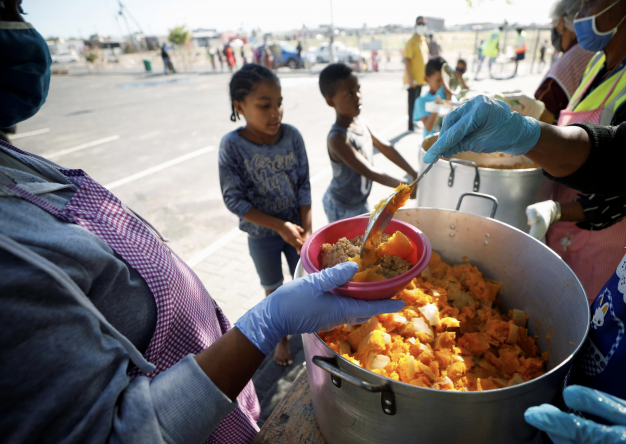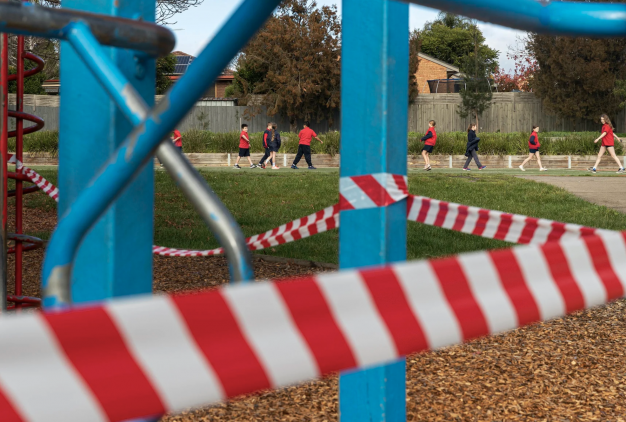
Devastating impact of COVID on children’s lives ‘far worse than first thought’
The devastating impacts of the COVID pandemic on children’s lives globally has been far worse than first feared, says an influential child rights organisation.
In what has been an exceptional year, the KidsRights Foundation’s KidsRights index says that children have been ‘fundamentally failed’ by the authorities worldwide.
The index is the only global ranking of 182 countries that measures how children’s rights are respected, and individual countries’ level of commitment to young people. This is the ninth consecutive edition to be published, and includes a special note to assess the true impact of the COVID on children.
Marc Dullaert, founder of KidsRights Foundation, said: “With the ongoing global pandemic, we had to address the devastating impacts and outcomes of COVID-19, and it has unfortunately exceeded our predictions at the outset last year.
“Apart from patients of the Coronavirus, children have been hardest hit, not directly by the virus itself, but fundamentally failed through the deferred actions of governments around the world, despite the signals, which will lead to serious, long-term repercussions for the health of future generations.”
The full extent of this impact is yet to manifest itself, we are not there yet, and governments will need measures and policies long into the future to deal with this post COVID-19 crisis.
The KidsRights Index is an initiative of the KidsRights Foundation, the Erasmus University Rotterdam, Erasmus School of Economics and the International Institute of Social Studies. It comprises a ranking of all UN member states that have ratified the UN Convention on the Rights of the Child and for which sufficient data is available, as of 2021 a total of 182 countries are part of the Index.
In the KidsRights Index 2021, Iceland continues to rank first, followed by Switzerland and Finland. Chad, Afghanistan and Sierra Leone are at the bottom. This year’s special COVID note points to four key impacts of the pandemic in relation to children: violence against children; non COVID-19 vaccinations for children; education and the related issue of school meals; and mental health and wellbeing.
Impact on education
It found that ‘schools for more than 168 million children have been closed for almost a full year’. Negative examples include the Netherlands, where the Dutch Government closed schools in December to encourage parents to stay at home. Fewer than half the population in 71 countries have access to the Internet, and this drops below 25 per cent in African and South Asian countries. At least one in three schoolchildren has been unable to access remote learning while their schools were closed. UNESCO has acknowledged over 100 million additional children will fall below the minimum proficiency level in reading as a result of the health crisis.

Increase in domestic violence
The report reflects an astonishing increase in domestic violence and abuse during the lockdowns, with children as victims. Evidence from school closures already suggests an increase in early marriage and sexual violence in some countries. The NGO Plan International suggests an additional 13 million child marriages are likely to occur between 2020 and 2030.
Mental health and well-being
An additional 142 million children fell into poverty and lack access to social protection, while a report by UNICEF and the International Labour Organisation suggests every one percentage point rise in poverty leads to at least a 0.7 percentage point increase in child labour.
Another issue which has serious consequences for children’s physical and mental health and well-being is access to schools, often the main or most nutritionally important meal of the day. The index says that around 370 million children were deprived of a school meal during the pandemic.
In March 2021, in Latin America and the Caribbean alone, 80 million children were still reported to be without daily school meals. In the UK, the Royal College of Psychiatrists identified in April that while the crisis is affecting people of all ages, it is under-18s who are suffering most with mental health issues. The college highlighted ‘the devastating effect that school closures, disrupted friendships and the uncertainty caused by the pandemic have had on the mental health of our children and young people’.
One individual was singled out for special praise however, the Manchester United and England footballer Marcus Rashford, who worked tirelessly, cajoling politicians at the highest level, to try and extend the provision of school meals to disadvantaged children.
Rays of light?
Globally, there have been some other – albeit rare – beacons of hope over the past year. Take Bangladesh, where despite widespread poverty there was an initiative to promote homeschooling by taking over one of the national TV channels, Bangladesh Television.
Both Belgium and Sweden are highlighted as doing their utmost to keep schools open in their countries. Scotland will become the first devolved nation in the world to directly incorporate the UN Convention on the Rights of the Child into domestic law. The Scottish Government adopted several poverty alleviation measures quickly in response to the pandemic, and is also unique in using Child Rights Impact Assessments for all Coronavirus policy interventions that might have a bearing on children.
The KidsRights Foundation consulted with Children’s Ombudspersons across Europe and found that European governments showed insufficient priority for children and their rights in their Coronavirus policies and response measures.
Actions to take
To help policymakers with meaningful follow-up actions, the UN Committee on the Rights of the Child has produced a framework of child rights-based principles and directions (Annex A).
KidsRights says that Governments are morally obliged to adopt a COVID Child Rights Impact Assessment (CRIA) for all their current and future COVID and post-COVID policies, and should prioritise this in order to safeguard the rights of future generations, and to avoid a generational catastrophe.
Marc Dullaert added: “Global governments must focus on mental health and education as much as the economy in their post COVID-19 crisis policies to safeguard future generations. Educational recovery is the key to avoiding generational catastrophe.”




